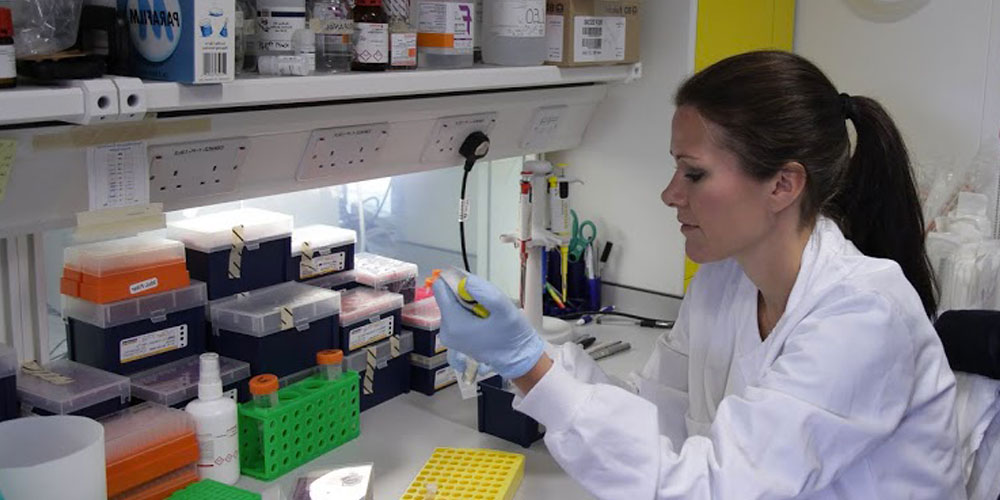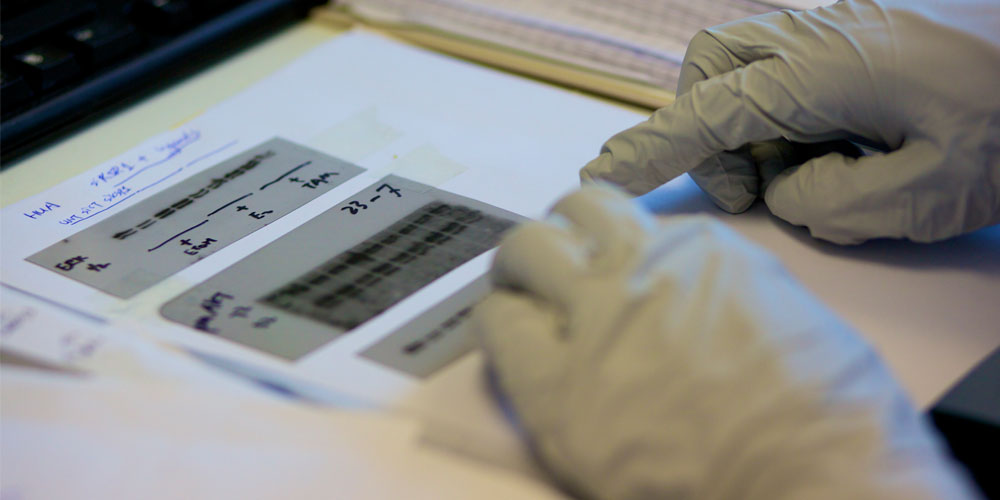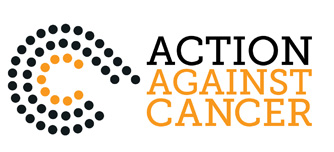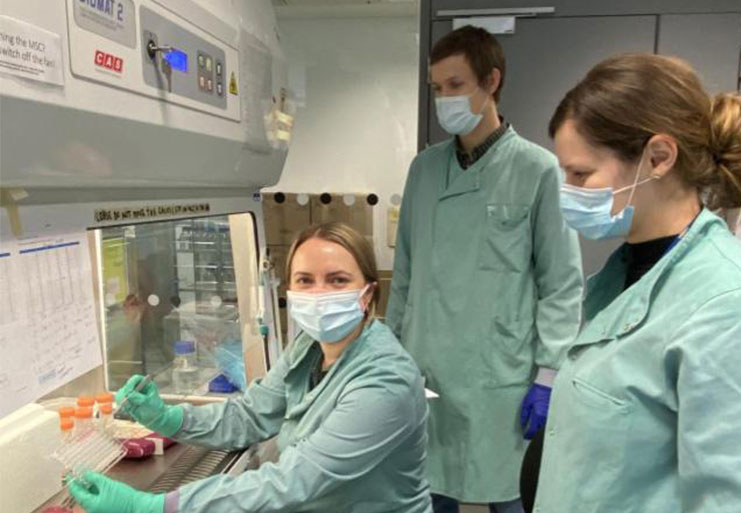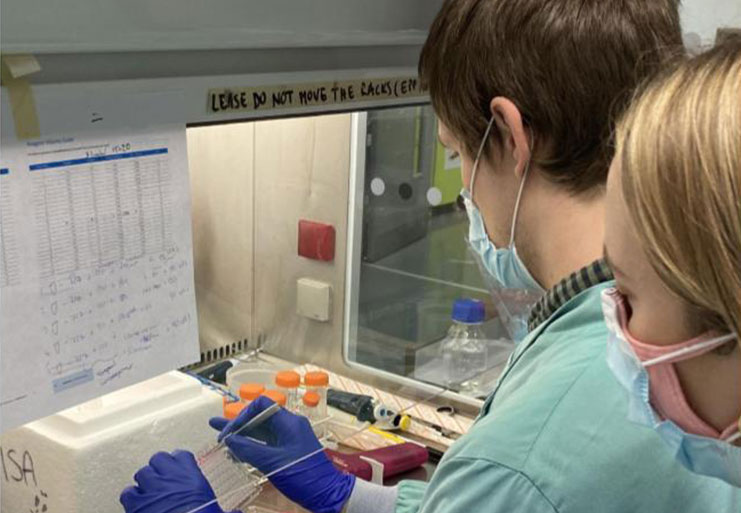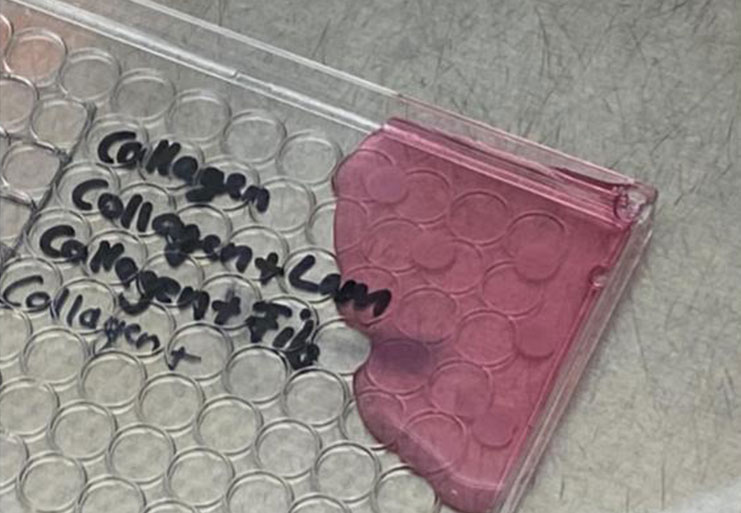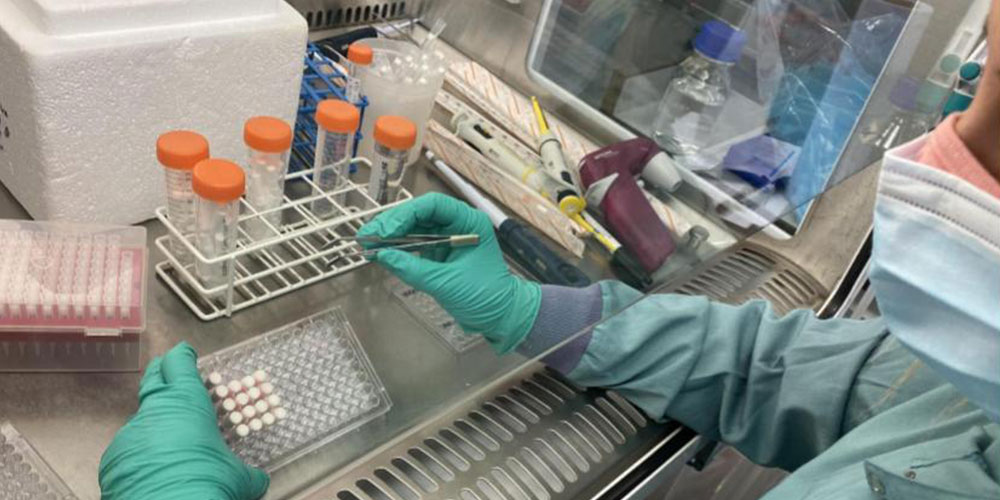Our work
Some 2021 achievements in the labs
Action Against Cancer funds research carried out by various teams of dedicated scientists at Imperial College London, the University of Sussex and the University of Manchester.
This year has been challenging because of the coronavirus pandemic, not least because access to the laboratories has been limited. However, the teams have still made great progress. Highlights of their work from 2021 include:
Cancer stem cells
The team at The University of Manchester funded by Action Against Cancer has established several drug resistant cancer cell lines in their innovative breast cancer research. They have developed collaborations with laboratories in Paris and Dublin to compare their models to look for similar patterns. The therapy-resistant tumours and cells are being analysed to identify signalling pathways using bioinformatics, which utilises computing power to simplify complex biological data. The aim is to use these results to start testing potential drugs in therapy-resistant cells.
Developing a new drug - A totally new approach to therapy
Action Against Cancer is funding a team working to combat the cancer causing gene LMTK3. They are developing a new drug that will work with existing treatments, to overcome patient’s resistance that often develops over time – a revolutionary step. Having identified the first LMTK3 drug, the team is now focusing on optimising LMTK3 drug options to be as potent and effective as possible. This exciting research has enormous potential to help cancer patients.
Metastasis
Triple negative breast cancer is often more aggressive, spreading (metastasising) more effectively than other breast cancers. Action Against Cancer is supporting research into identifying receptors that specifically drive this type of cancer, to be able to target them and treat patients. Using an innovative strategy, the team have now identified, for the first time, that a subset of such molecules is an important driver of triple negative breast cancer and that these can be used as tailored therapeutic targets to treat this notoriously difficult disease.
Genetic switches
One of the most powerful cancer causing genes, c-Myc, is extremely difficult to target with treatments. However, a team at the University of Sussex funded by Action Against Cancer, has discovered a way of directly “turning off” c-Myc to fight cancer. They have done this by using Dicer, an enzyme that has been shown to enhance or restrain tumour initiation and progression. This very promising development offers much hope for cancer patients.
Understanding the cancer brain
By encouraging cancer cells to change into normal cells, differentiation therapy could offer a groundbreaking treatment option for cancer patients. It would also reduce the problems of toxicity of more conventional treatments such as chemotherapy and radiotherapy, which generally involve killing tumour cells. Differentiation therapy is an alternative that can alleviate this problem in the treatment of advanced cancers. Supported by Action Against Cancer, a team has demonstrated how a specific enzyme is involved in changing brain cancer cells back into normal cells. Work continues to further examine this enzyme and it’s potential to help patients.
Some previous achievements in the labs:
- From 2024
- From 2023
- From 2022
- From 2021
- From 2020
- From 2019
- From 2018
- From 2017 (part two)
- From 2017 (part one)
- From 2016
